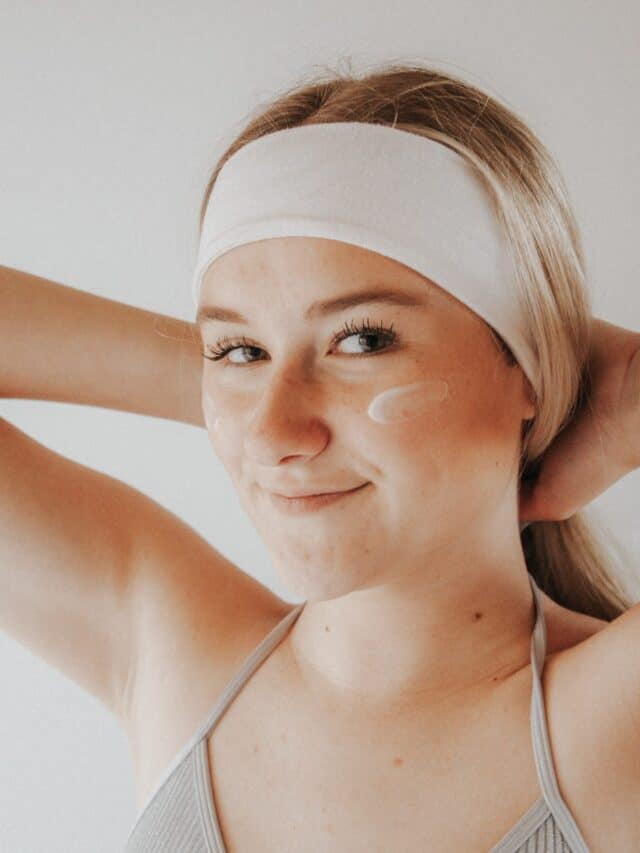Don’t have time for intensive skin care? You can still treat yourself by learning the fundamentals. Good skin care and a healthy lifestyle can help to delay natural ageing and avoid a variety of skin disorders. Begin with these five no-nonsense pointers.
1. Protect yourself from the sun
Protecting your skin from the sun is one of the most important ways to care for it. Sun exposure throughout a lifetime can create wrinkles, age spots, and other skin issues, as well as raise the risk of skin cancer.
To get the most comprehensive sun protection:
- Apply sunscreen. Use a broad-spectrum sunscreen with a minimum SPF of 15. Apply sunscreen liberally and reapply every two hours — or more frequently if you’re swimming or sweating.
- Seek out some shade. Avoid the sun between 10 a.m. and 4 p.m., when its rays are at their maximum.
- Put on protective clothes. Wear tightly woven long-sleeved shirts, long pants, and wide-brimmed hats to protect your skin. Consider laundry additives, which offer an extra layer of ultraviolet protection to clothing for a limited number of washings, or special sun-protective gear, which is specifically intended to block ultraviolet radiation.
2. Don’t smoke
Smoking ages your skin and contributes to wrinkles. Smoking constricts the small blood vessels in the skin’s outermost layers, reducing blood flow and making the skin darker. This also depletes the skin of oxygen and nutrients, both of which are essential for skin health.
Cigarette smoking also harms collagen and elastin, the fibres that give your skin strength and elasticity. Furthermore, smoking-related repetitive facial gestures, such as pursing your lips when inhaling and squinting your eyes to keep smoke out, can contribute to wrinkles.
Furthermore, smoking raises your chances of developing squamous cell skin cancer. Quitting smoking is the best method to protect your skin. Consult your doctor for smoking cessation advice or treatments.
3. Treat your skin gently
1. Limit your bath time. Long showers or baths with hot water remove oils from your skin. Limit your bath or shower time and use warm, not hot, water.
Strong soaps should be avoided. Strong soaps and detergents can rob your skin of its natural oils. Instead, use gentle cleaners.
2. Shave with caution. Apply shaving cream, lotion, or gel before shaving to protect and moisturise your skin. Use a clean, sharp razor for the closest shave possible. Shave towards the direction of hair growth rather than against it.
3. Allow to air dry. After washing or bathing, pat or blot your skin dry gently with a towel, leaving some moisture on your skin.
4. Hydrate dry skin. If your skin is dry, use a moisturiser that is appropriate for your skin type. Consider using an SPF-containing moisturiser on a daily basis.
4. Eat a healthy diet
A nutritious diet can assist you in looking and feeling your best. Consume a variety of fruits and vegetables, healthy grains, and lean proteins. The link between nutrition and acne is not well understood, although some studies suggests that a diet high in fish oil or fish oil supplements and low in harmful fats and processed or refined carbohydrates may promote younger-looking skin. Keeping your skin hydrated by drinking plenty of water.
5. Manage stress
Uncontrolled stress can cause your skin to become more sensitive, resulting in acne breakouts and other skin problems. Take efforts to control your stress to promote healthy skin — and a healthy state of mind. Get enough sleep, set acceptable limitations, reduce your to-do list, and create time for things you enjoy. The outcomes may be more dramatic than you expect.
